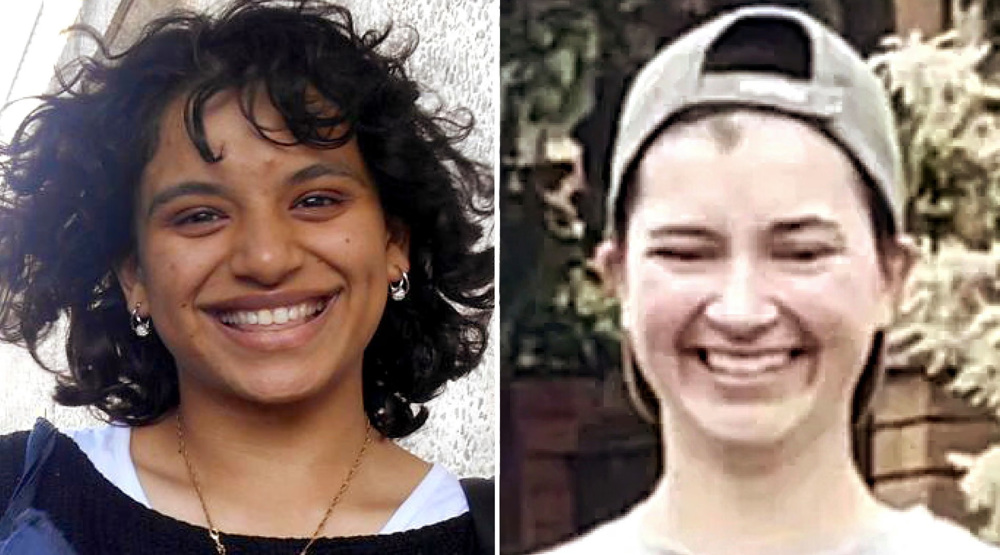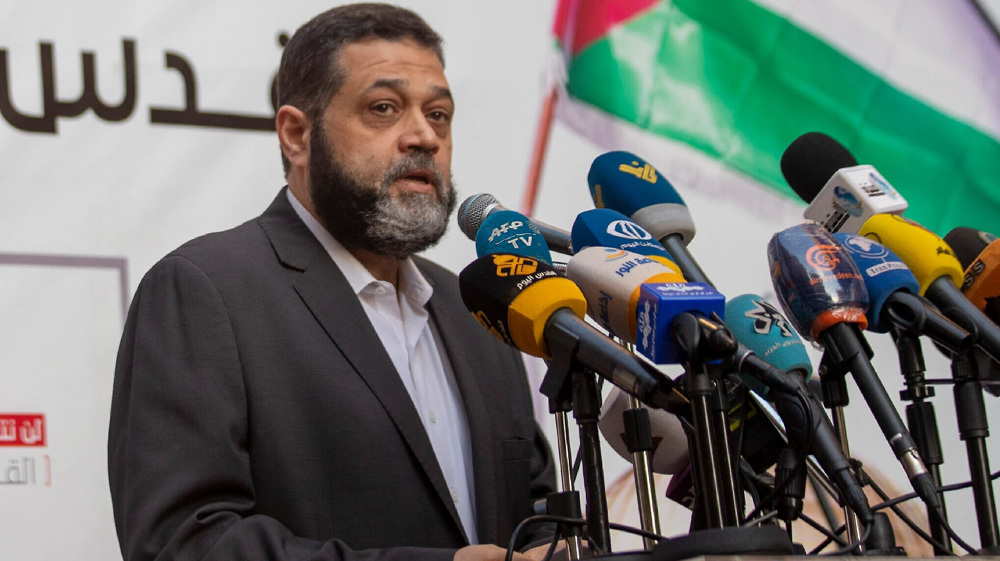Israeli police arrest four protesters following new coronavirus lockdown law
Israelis have taken to streets in Tel Aviv to express their anger at a controversial law that limits protests during the coronavirus-related lockdown, a measure widely believed to be aimed at taking advantage of the health crisis and heading off mass demonstrations against scandal-hit Prime Minister Benjamin Netanyahu.
Four protesters were arrested by police after the rally, which was held in Tel Aviv on Wednesday night, descended into skirmishes.
Police claimed that the protest led to “grave civil unrest,” and that the four were taken into custody on suspicion of rioting and attacking police officers.
However, the detainees’ solicitor, Attorney Daniel dismissed police charges against the detainees as “unfounded.”
Police also said the protesters had “attacked the officers, throwing objects and breaking through the police cordon, intending to block the road.”
“I did not see any rioting. The protest ended on its own,” Alec Yefremov, a participant of the march, told The Jerusalem Post, adding, “They [the police] are obviously lying, as usual.”
The Netanyahu-backed legislation, which was approved early Wednesday after an all-night debate, will give the administration the power to ban people from holding demonstrations more than one kilometer (0.6 miles) from their homes, and limit outdoor gatherings to a maximum of 20 people.
The bill was ratified on second and third readings by a vote of 46-38.
Under the final version of the law, the Israeli cabinet can curtail protests, prayers and religious ceremonies for a week under the so-called “special coronavirus emergency,” with the possibility of extending it another two weeks should the “emergency” remain in place.
The measure also removes a clause that had exempted protests and prayers from rules limiting gatherings.
The restrictions are set to come before the Knesset’s so-called Constitution, Law and Justice Committee later on Thursday for final approval.
Critics of the new law vociferously said it was intended to block protests near Netanyahu’s official residence in Jerusalem al-Quds and would only serve his political interests using the virus as a cover.
“I think we can see they are not aimed at stopping the pandemic or the coronavirus but it’s a political restriction in order to stop and kill the demonstrations against Netanyahu,” said one protester. “This is an anti-democratic law. It’s only to stop resistance against a prime minister that is corrupted and accused of many crimes.”
Over the past weeks, the streets near Netanyahu’s residence have been the scene of large protests amid rising anger over the premier’s graft charges and what is viewed as his mishandling of the coronavirus pandemic.
On Tuesday, Netanyahu said that this lockdown, originally set to end on October 10, would last “no less than a month, and maybe much more time than that.”
Netanyahu may need to be suspended as PM: AG
Meanwhile, Israeli Attorney General Avichai Mandeblit said he has not ruled out the possibility that Netanyahu may have to be suspended as premier if he seeks to use his prime ministerial authority to try to influence the criminal proceedings he is currently facing in court.
Speaking to the Israeli Mishpacha magazine in comments aired Tuesday, Mandelblit, who has previously stated that the prime minister does not have to step down, said the Netanyahu could, in theory, have to be suspended due to a conflict of interest.
“When you use your executive power as prime minister to influence your criminal [cases], that creates a serious problem,” Mandelblit was heard saying in recordings of the interview released by Channel 12 news.
“How do you handle that problem? If we can’t, it’s possible we will really come to recusing [Netanyahu],” Mandelblit said.
He said that Netanyahu was not “doing me a favor” by agreeing to sign a binding conflict-of-interest deal as part of the arrangements for him to remain in office while on trial.
“I don’t accept that he says ‘I’ll volunteer to place limitations upon myself.’ No. You must limit yourself… I’m not innocent or naive, I’m sure it won’t be 100 percent, but we do need this commitment that he is not dealing, for instance, with appointments to law enforcement, not dealing with amending legislation that touches on his personal issues, while abusing his power. That mustn’t be allowed,” Mandelblit said.
Netanyahu, whose corruption trial began in May and is set to resume in January, was sworn in for a fifth term this summer after striking a unity deal with his principal election rival, former military chief Benny Gantz.
Ex-UK officers urge PM Starmer to impose full arms embargo on Israel
Pro-Palestine prisoners pause hunger strike, but vow to resume fight
Hamas says will not disarm, demands stronger ceasefire guarantees
Iran rejects coercion, calls on West to ‘reverse course’ for trust-building
Yemen’s Ansarullah, ousted regime agree to release 2,900 prisoners
Venezuela denounces US for ‘greatest extortion in history’
VIDEO | Israeli strike kills three in Lebanon as regime mulls renewed war
VIDEO | Hundreds gather outside UK Ministry of Justice, demanding strikers’ release











 This makes it easy to access the Press TV website
This makes it easy to access the Press TV website